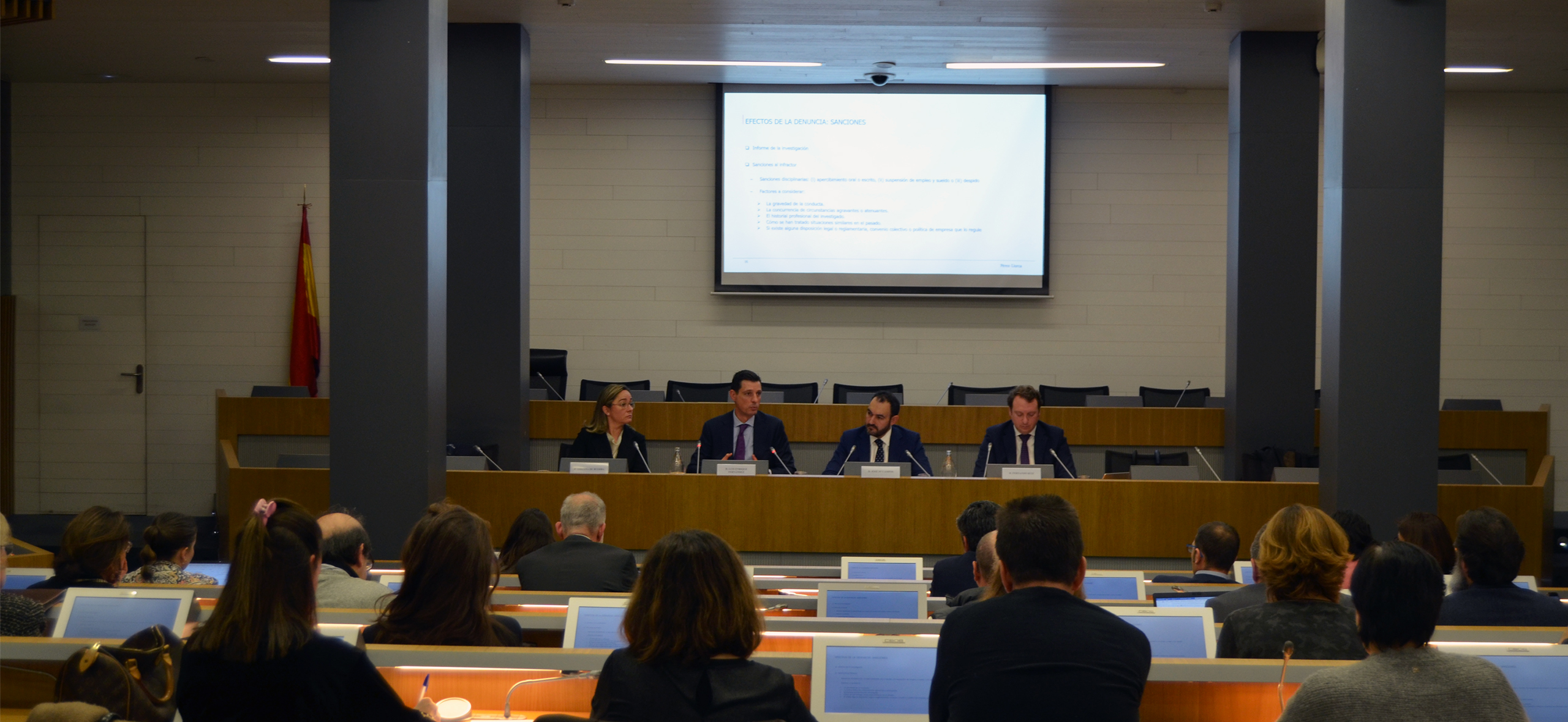Speakers at the meeting, held at the headquarters of the CEOE, included José María Campos, Legal Director of the CEOE; Adriana de Buerba, a partner in the White Collar Crime and Investigations practice at Pérez-Llorca; along with Luis Enrique Fernández Pallarés and Fernando Ruiz, both partners in the Employment practice at this firm.
José Maria Campos introduced the event and presented the speakers, before Luis Enrique Fernández and Adriana de Buerba took over to discuss the Whistleblowing Directive and the new obligations for Spanish companies.
Both agreed that this new regulation introduces a highly significant change, since companies will have to adapt their internal reporting channels, as well as the way they process investigations in terms of employment and regulatory compliance.
Adriana de Buerba pointed out that one of the most significant aspects of this directive is that it includes the obligation to keep the reporting person’s identity confidential. The company must know who it is, but has the duty not to disclose this information. This can be an obstacle in the case of criminal reports, as an accused has a constitutional right to know the identity of their accuser, which means, according to De Buerba, that the law which transposes this European directive will have to consider this scenario.
Luis Enrique Fernández Pallarés emphasised that articles 9 and 11 of this European regulation include the procedures for internal and external reporting respectively. The directive requires feedback to be provided to the reporting person in the case of external reporting, but not in the case of internal reporting, where the reporting person must only be informed of the completion of the process.
Fernando Ruiz then analysed the main changes this Directive involves. One such change is that the reporting person will be protected, as long as the information is truthful, was reported in good faith and reports something which is illegal under Spanish legislation. In addition, only reports made through the established channels will be taken into account, except in exceptional cases, such as when national security is affected, when there is imminent social danger or if the internal and external channels have failed. In addition, Ruiz highlighted the intended audience of this directive, as it not only protects current employees of a company, but also former workers, suppliers, customers or people with no labour relationship with the company, a significant shift in stance from Europe.
Another point highlighted by Ruiz is that the company cannot rely on any confidentiality clauses that their employees have signed and claim the breach thereof during an investigation into a report.
Lastly, he mentioned that the directive seeks to protect companies against false allegations by make such actions punishable.
Luis Enrique Fernández Pallarés and Adriana de Buerba ended the session by explaining how to carry out an investigation after receiving a complaint through the company’s complaint channels.
Fernández Pallarés noted the need for companies to have a procedure to deal with any reports from employees. The internal or external body that will carry out the investigation, and channel it internally to the corresponding department which is affected by the report, must be established. His recommendation was to simplify this process as much as possible, so that one procedure can be used for all possible cases.
Lastly, De Buerba highlighted the fact that companies are not exempt from criminal liability for what was reported, and that Spanish law, rather than EU legislation, will need to establish the penalties for non-compliance. She also stressed that this regulation does not provide for criminal protection for the reporting person if they committed the crime reported. According to De Buerba, for criminal matters, collaboration is a mitigating factor but is not exculpatory, except in specific cases specified by law, and thus the transposition of this legislation must regulate this aspect.
